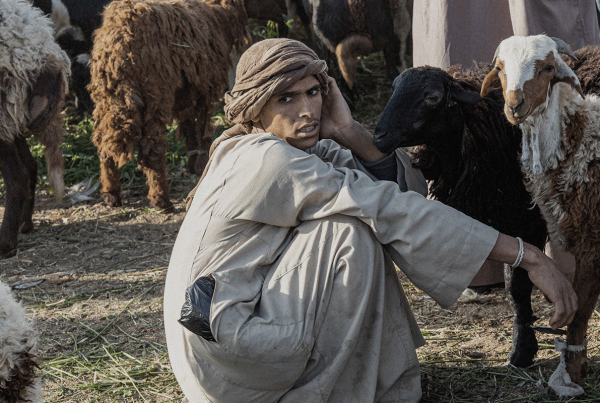National Human Trafficking Awareness Day is recognized in the United States every year on January 11. The day is part of the broader National Human Trafficking Prevention Month, which happens throughout January.
Here’s what National Human Trafficking Awareness Day is, how it was established, and how you can get involved.
What is National Human Trafficking Awareness Day?
National Human Trafficking Awareness Day is a day of social advocacy intended to combat human trafficking through increased awareness of its causes, effects, and warning signs. Around the country, advocates for combatting human trafficking in all its forms spread awareness through social media posts, fundraisers, and awareness events.
Blue is the official color of human trafficking awareness, as designated by the UN. The Department of Homeland Security marks January 11 with their Wear Blue campaign. The initiative raises awareness through inviting professionals and everyday activists to wear blue as a conversation starter. Individuals are encouraged to post photos online of their blue clothing, using the associated hashtag #WearBlueDay. Some cities have also been known to light up significant landmarks or buildings with blue lights.
History of National Human Trafficking Awareness Day
National Human Trafficking Awareness Day was first formalized on June 22, 2007, by the U.S. Senate. The resolution was a bipartisan effort by Senators Dianne Feinstein (D-Calif.), John Cornyn (R-TX), Barack Obama (D-IL), and Dick Lugar (R-IN).
The resolution reads: “Resolved by the Senate (the House of Representatives concurring), That Congress supports the goals and ideals of observing the National Day of Human Trafficking Awareness on January 11 of each year and all other efforts to raise awareness of and opposition to human trafficking.”
In a statement, then-senator Barack Obama said, “Human trafficking is an atrocity and we must do everything we can to enforce the law and to raise awareness to prevent it. This resolution will bring national attention to the victims of modern slavery in sweatshops and other forced labor enterprises throughout the nation.”
The resolution marked a growing movement in the United States towards understanding and combating human trafficking. This followed the Trafficking Victims Protection Act, which was initially passed in 2000.
National Human Trafficking Awareness Day paved the way for the establishment of National Human Trafficking Prevention Month, which was first recognized by a presidential proclamation from Barack Obama in 2010. The month has continued to be affirmed yearly as an opportunity to combat human trafficking, most recently by President Biden in 2022.
“Since human trafficking disproportionately impacts racial and ethnic minorities, women and girls, LGBTQI+ individuals, vulnerable migrants, and other historically marginalized and underserved communities, our mission to combat human trafficking must always be connected to our broader efforts to advance equity and justice across our society,” President Biden said.

How you can get involved
If you want to get involved on National Human Trafficking Awareness Day, here are some practical ideas for joining awareness and prevention efforts.
Educate yourself
The first step to spreading awareness effectively is educating yourself. Knowing the signs and characteristics of trafficking will give you the ability to be more aware in your own community, and to spread that awareness to your network.
One way to do this is through TraffickWatch, a totally free two-module course that will give you essential information about trafficking. Enroll and complete the course in less than an hour.
Wear blue
Join the Department of Homeland Security’s #WearBlueDay campaign by wearing blue and using the hashtag. Think about what human trafficking facts you’d like to share with your coworkers, friends, and family as conversations arise.
You can also invite your friends or your workplace to join you.
Keep up with human trafficking news
If you want to stay up-to-date on news from the fight against human trafficking, you can get updates on The Exodus Road’s anti-trafficking efforts right to your phone. Sign up by texting RESCUE to (727) 273-7283.
Use your social platforms
No matter how many followers or friends you have on social media, you have influence. Social media posts about human trafficking can go a long way toward raising awareness that could save lives.
Consider posting resources, such as the National Human Trafficking Hotline: (888) 373-7888.
You can also find up-to-date resources on our social media feeds. Find helpful information to share on our channels on Facebook, Instagram, TikTok, and Twitter!







